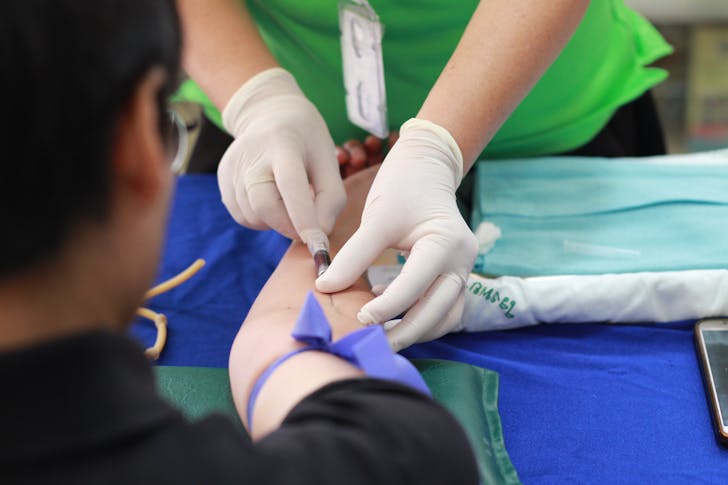
How the Global Health System Is Changing Amid Wars and Pandemics

The health system isn’t what it used to be. Global politics are shifting, aid is shrinking, and new threats keep coming. From COVID-19 to climate change, the pressure is on. To keep up, the global health system has to do more and do it smarter.
In places hit by war or crisis, governments often can’t provide health care. That is when outside actors step in to fill the gap. These groups deliver services, set up clinics, and help communities survive.
But this role should be temporary. The goal is to shift power back to local teams as soon as possible. Long-term help shouldn’t replace local control. It should build it.
Limited Funding
The global health system has relied on outside funding for years. But now, countries like the U.S. and UK are cutting back. That is creating a serious gap, with up to $60 billion at risk.

Pran / Pexels / New funders like the BRICS+ nations are stepping up, but they play by different rules. They focus on loans, not grants, and they want deals that serve their national interests.
So, it is a new money game, and it is tougher than ever.
Some of the best support global health actors can offer is technical—not money, but expertise. That includes advice on policies, training, and running health programs.
But this only works when it fits local needs. Too often, outside experts try to control the show. Real help means listening, not taking over. The health system has to respect national voices and support real, lasting solutions.
Share Knowledge That Helps Everyone
Some tools in the health system help all countries, not just one. These are called global public goods. Think vaccine research, disease tracking, or shared safety rules.
This kind of work has to keep growing. The next pandemic won’t wait. We need strong data systems, fast alerts, and clear standards that every country can follow.
Many health threats cross borders. Pandemics, drug resistance, and even climate change need joint action. No country can fix these alone.
Transnational collaboration is the name of the game. That means honest partnerships, shared goals, and quick decisions. Sluggish bureaucracy won’t cut it anymore. The global health system has to move fast and work as one.
Financing Is a Mess

CDC / Unsplash / Digital tools are changing how health systems work. AI, mobile apps, and cloud data can boost care, save money, and reach more people. But only if they are used well.
Money drives everything, and the current model is breaking down. Aid is shrinking, new funders are picky, and low-income countries are being told to pick up the slack, even when they can’t.
These countries face debt, broken tax systems, and tough choices. Health often gets pushed aside. The global health system needs a new approach to financing that blends public money, private investment, and smart risk-taking.
Some regions are charging ahead, while others are falling behind. That gap matters. The global health system needs to invest in digital equity so everyone can benefit, not just the wealthy.
The Workforce Is at a Breaking Point
Doctors and nurses are quitting. Many are burned out or angry. Strikes are rising. The health system can’t run without people, and right now, people are hurting.
We need better pay, better training, and less red tape. Tech can help, but it is not a magic fix. The human side of health care matters. Without a strong workforce, the whole system falls apart.
More in Health
-
`
5 U.S. Family Vacation Spots You Should Book ASAP
If you are looking for the best family vacation spots in 2025, skip the guesswork. These five places deliver the fun,...
May 27, 2025 -
`
These Stars are ‘Banned’ From the 2025 Met Gala
The Met Gala might be fashion’s Super Bowl, but not every celebrity wants to play. While millions obsess over who wore...
May 20, 2025 -
`
5 Archaic Home Decor Trends That Should Never Come Back
Home decor trends come and go faster than a TikTok challenge. One minute you are painting your walls grey, the next...
May 13, 2025 -
`
5 Reasons Why Everyone Is So Obsessed With Gut Health
Gut health is not just another wellness trend anymore. It is front and center for a reason. From TikTok tips to...
May 6, 2025 -
`
Mother’s Day 2025: Top 6 Family-Friendly Activities to Try This Year!
Mother’s Day activities shouldn’t be stressful or boring. This year, think fun, simple, and memory-making. Whether you are celebrating mom, grandma,...
April 29, 2025 -
`
10 Once-Famous Celebs Who Live Totally Normal Lives Now
Some celebs decide that stardom just isn’t for them. While they once walked red carpets and hit magazine covers, they eventually...
April 21, 2025 -
`
Top 5 Expert Tips for Designing a Home That Lasts a Lifetime
A good home is not just about curb appeal or trendy features. It is about smart choices that make life easier...
April 15, 2025 -
`
Fitness, Health & Performance: How Runners Can Master All Three
Runners care about more than just miles. They want to feel strong, stay healthy, and hit new personal bests. But balancing...
April 7, 2025 -
`
Here’s Why You Should Go on a Multigenerational Trip Once a Year
A multigenerational trip is more than just a vacation. It is a chance for your whole family – from toddlers to...
April 1, 2025















You must be logged in to post a comment Login